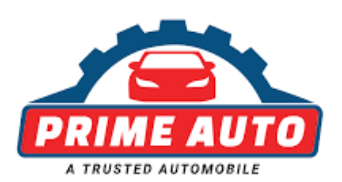In 1988, the Motor Vehicles Act mandated third-party online bike insurance, making it imperative for bike owners to secure coverage. Amidst the myriad options available, the distinction between cashless and reimbursement claims is crucial.
Cashless Vs. Reimbursement: Unveiling The Differences
Cashless Two-Wheeler Insurance:
- Definition: In cashless claims, the insurance company directly settles the bills with the network garage, eliminating the need for the policyholder to make payments initially.
- Procedure: It is paperless, streamlining the claim settlement and minimising paperwork.
- Duration: Due to direct settlement, cashless claims are resolved swiftly, ensuring prompt reimbursement.
- Network Garages: Limited to specific network garages designated by the insurance provider.
Insurance Reimbursement For Two-Wheelers:
- Definition: Reimbursement claims require the policyholder to pay the full amount to the network garage initially, followed by submission of a reimbursement claim to the insurance company.
- Procedure: Involves formalities and the submission of bills, leading to a longer claim settlement process.
- Duration: Compared to cashless claims, the reimbursement process is prolonged due to additional paperwork.
Obtaining Cashless Bike Insurance: A Step-by-Step Guide
To avail of cashless benefits in online bike insurance, follow these steps:
- Purchase Cashless Two-Wheeler Insurance: Choose a comprehensive or standalone own damage cover policy that offers cashless benefits.
- Initiate Claim Process: Notify the insurance provider in the event of damage, initiating the claim process.
- Report Incidents And Gather Documentation: Obtain a copy of the FIR in case of accidents. Report the incident to the insurance provider.
- Transport Vehicle To Network Garage: The insured bike should be taken to a designated network garage for assessment.
- Assessment And Repairs: Network garage personnel assess and confirm the damages, commencing the repair process.
- Direct Billing: Upon completion of repairs, the insurance company settles the network garage bills directly.
- Policyholder Expenses: If applicable, the policyholder incurs only deductible and depreciation costs.
Advantages Of Cashless Two-Wheeler Insurance
- Efficient Claim Procedure: Streamlined and hassle-free, requiring minimal documentation for quick resolution.
- Debt-Free Repairs: No direct payments are required from the policyholder as the insurance covers network garage bills.
- Enhanced Repair Settlements: Policyholders receive optimal services without compromising quality or using substandard parts.
- Accessible Network Garages: While limited to specific network garages, reputed providers offer a widespread network, ensuring accessibility.
Documents Required For Cashless Bike Insurance Claim
Typically, filing a cashless bike insurance claim doesn’t necessitate extensive documentation. However, certain documents may be required:
- Vehicle’s Registration Certificate (RC)
- Driver’s License
- Insurance Policy Documents
- First Information Report – FIR (In Case of Accidents)
- Pictures and Videos of Damaged Bike
- Original Network Garage Invoice
Bike insurance acts as a crucial financial safety net for unforeseen damages. Opting for cashless two-wheeler insurance ensures a streamlined and hassle-free claim process with minimal paperwork and direct billing. This option is ideal for bike owners seeking efficient and debt-free repair settlements. Ensure that you carry out the bike insurance renewal process on time for uninterrupted coverage. Claims are subject to terms and conditions set forth under the motor insurance policy.
Bajaj Allianz third-party two-wheeler insurance renewal can easily be done in a few simple steps from the comfort of your home.
Subscribe to Bajaj Allianz General Insurance YouTube Channel here!
*Standard T&C Apply
Disclaimer: The content on this page is generic and shared only for informational and explanatory purposes. It is based on several secondary sources on the internet and is subject to changes. Please consult an expert before making any related decisions.
Insurance is the subject matter of solicitation. For more details on benefits, exclusions, limitations, terms, and conditions, please read the sales brochure/policy wording carefully before concluding a sale.








Leave a Reply